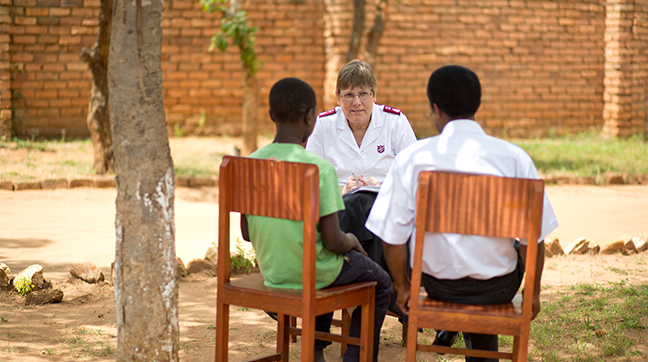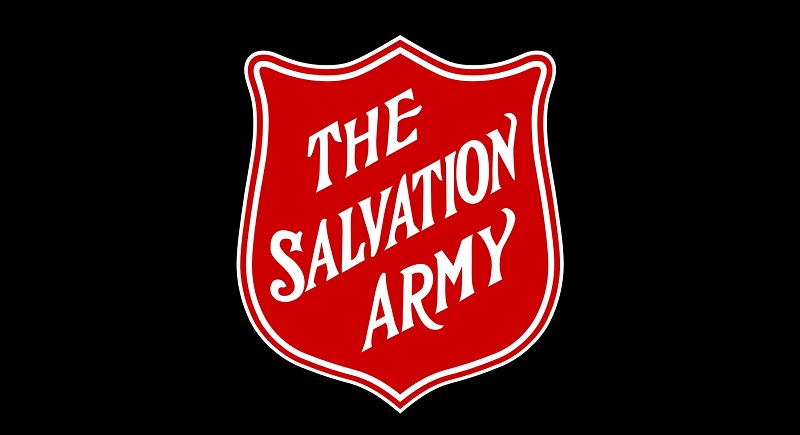Imagine that you are a 16-year-old boy living in Malawi. A man comes to your home and talks to your parents. Before you know it, your parents tell you to go because you need to earn money for the family. Your five siblings were to go also. Your mom tells you that this man will help and take care of you.
This happens every day in Malawi. However, trafficked persons don't necessarily end up where they were expecting.
Oswald experienced this first hand. He was that 16-year-old boy whose parent's sold him to the strange man that came to the door. He was employed to herd cattle, taking care of 15 in total. His day would start in the field at 10 a.m. By 5 p.m. he would go back to his living quarters and go to sleep. “There was no time for education or play. I would just go to sleep. I was afraid to go out,” he explains.
The meals were few and far between for Oswald. He would receive one meal in the evening. “It was a good meal, but only once a day. I suffered a lot.”
Fortunately, someone from the community had found him and he was rescued by The Salvation Army. His siblings were also rescued. He was taken to The Salvation Army's Child Trafficking Centre in Mchinji, Malawi, where he received proper nutrition, schooling, counselling, and teaching on how to earn a livelihood. The staff also works to reunite the children with family members where appropriate, or place them in an orphanage.
Oswald has his whole future to look forward to thanks to The Salvation Army. As for his goal in life, “I would like to finish my education and become a school teacher.”
The Statistics
• Human Trafficking is the second largest source of illegal income worldwide, exceeded only by drug trafficking.
• 1.2 million children are trafficked every year.
• 600,000-800,000 men, women and children are trafficking across international borders each year. Approximately 80 percent are women and girls.
• Malawian children are subjected to forced labour in domestic services, goat and cattle herding, agriculture (tobacco, tea, coffee and sugar plantations), begging, small businesses and coerced to commit crimes, including home robberies.
This happens every day in Malawi. However, trafficked persons don't necessarily end up where they were expecting.
Oswald experienced this first hand. He was that 16-year-old boy whose parent's sold him to the strange man that came to the door. He was employed to herd cattle, taking care of 15 in total. His day would start in the field at 10 a.m. By 5 p.m. he would go back to his living quarters and go to sleep. “There was no time for education or play. I would just go to sleep. I was afraid to go out,” he explains.
The meals were few and far between for Oswald. He would receive one meal in the evening. “It was a good meal, but only once a day. I suffered a lot.”
Fortunately, someone from the community had found him and he was rescued by The Salvation Army. His siblings were also rescued. He was taken to The Salvation Army's Child Trafficking Centre in Mchinji, Malawi, where he received proper nutrition, schooling, counselling, and teaching on how to earn a livelihood. The staff also works to reunite the children with family members where appropriate, or place them in an orphanage.
Oswald has his whole future to look forward to thanks to The Salvation Army. As for his goal in life, “I would like to finish my education and become a school teacher.”
The Statistics
• Human Trafficking is the second largest source of illegal income worldwide, exceeded only by drug trafficking.
• 1.2 million children are trafficked every year.
• 600,000-800,000 men, women and children are trafficking across international borders each year. Approximately 80 percent are women and girls.
• Malawian children are subjected to forced labour in domestic services, goat and cattle herding, agriculture (tobacco, tea, coffee and sugar plantations), begging, small businesses and coerced to commit crimes, including home robberies.










Leave a Comment